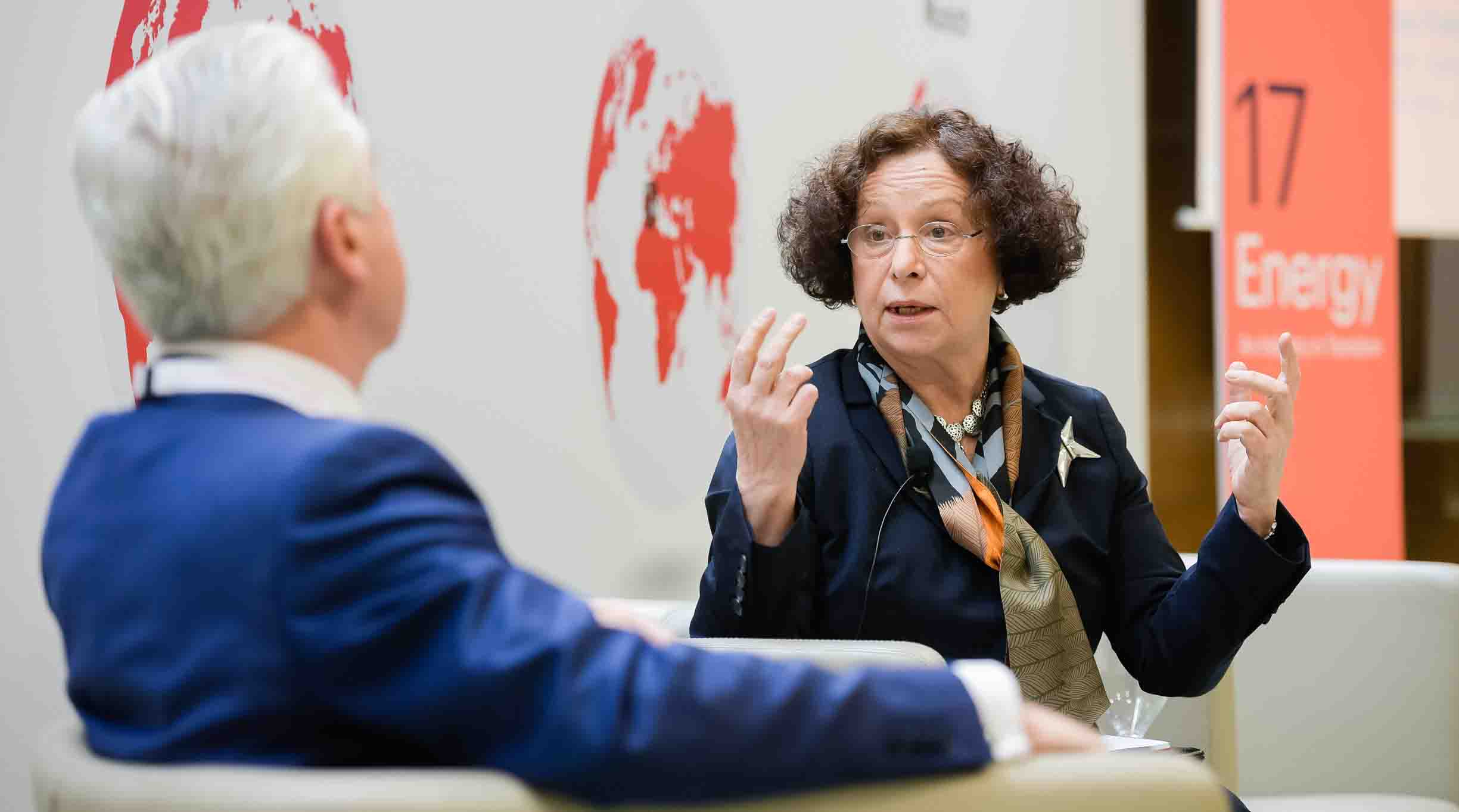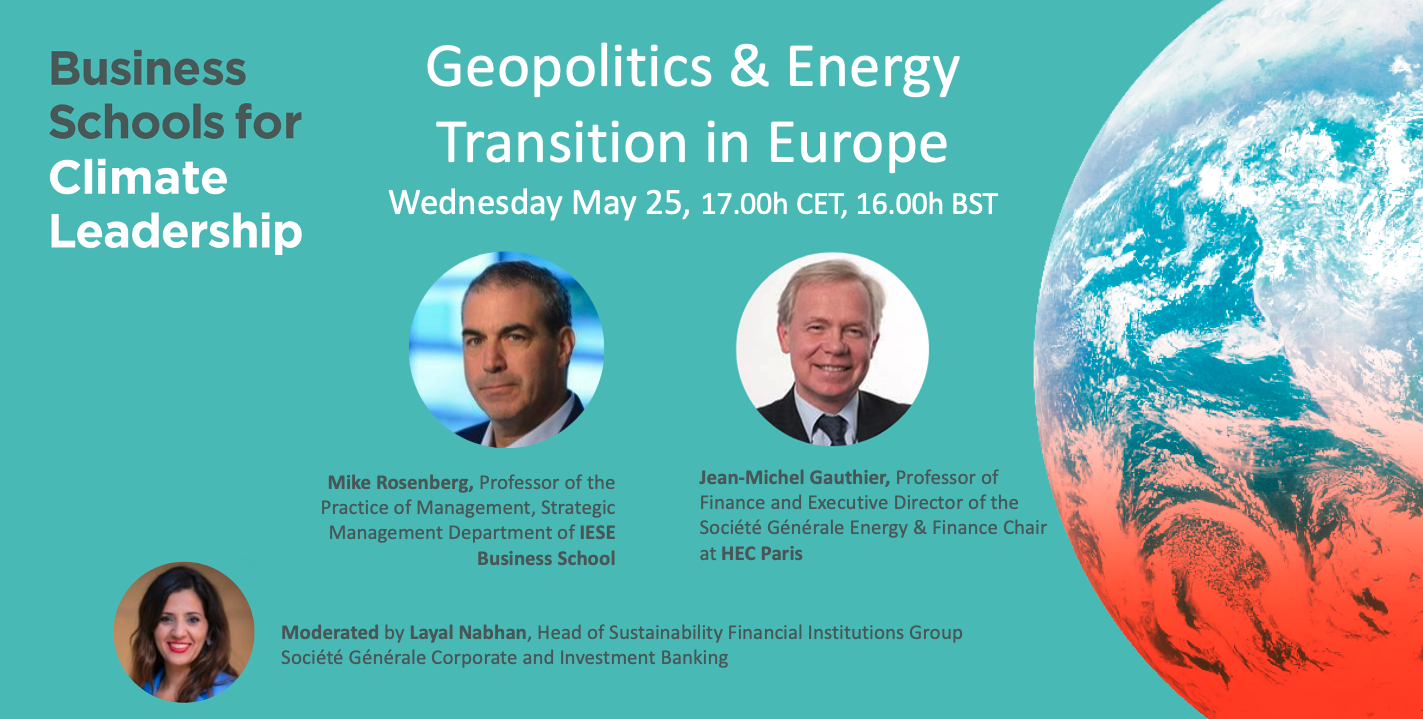Stories
Weak points in Europe’s fight against climate change
17th Energy Industry Meeting in Madrid looks at political, scientific and business obstacles to progress
Former Foreign Minister Ana Palacio at IESE’s 17th Energy Industry Meeting.
Photo: Javier Arias
February 24, 2020

While there is growing global consensus that global warming must be stopped, exactly how to accomplish that remains the subject of much debate, even in places where there is the political will to do so.
Within the context of the European Commission recently setting the goal for the continent to become climate neutral by 2050, leading industry officials, policymakers and academics met on IESE’s Madrid campus to celebrate the 17th Energy Industry Meeting.
Under the academic direction of IESE professor Juan Luis López Cardenete, the event counted on the participation of Valvanera Ulargui, managing director of the Oficina Española de Cambio Climático; Riccardo Puliti, senior director of energy and extractive industries at the World Bank; Carlos Sallé, Iberdrola’s director of energy policy and climate change; Ana Palacio, Spain’s former foreign minister; Francisco Rodríguez López, Viesgo’s managing director of generation and regulatory affairs; and Ana Quelhas, head of corporate energy planning at EDP Renováveis, among others.
During the event, four key weaknesses of Europe’s new strategy on sustainability were pinpointed.
- Lack of details. The first weak point, according to Quelhas, is that “we still don’t know how the emissions targets will be achieved.” In other words, companies need more specifics about the political instruments that are going to be used. If they aren’t given all the details, they won’t be able to adapt to this new context in time. And consequently, the objectives marked by Brussels will either remain unfulfilled or they’ll destroy more jobs and businesses than is necessary.
- Lack of consensus. The second weak point is that the European unity is flagging at the moment. “Member states and their particular interests are carrying much more weight than institutions and European priorities when it comes to the bigger issues of the Community,” Palacio said. Thus far, she added, this has made it impossible to reach an agreement concerning an EU-wide energy alliance. Identifying which specific instruments will be key in the fight against climate change requires reaching a consensus, which in today’s EU is far from easy.
- Lack of uniformity. The third weak point is also largely related to reaching consensus, but is linked to different development levels. Puliti said that “access to energy in developed and emerging countries are two very different stories.” Consequently, there is no universal, common agreement when it comes to the specific steps that must be taken to drastically reduce pollution and emissions, while still preserving the right of many societies, such as those in Africa, to prosper and industrialize. Related to this fact, Palacio clarified that “in Europe, we assume that others will follow our lead and policies to fight climate change, and I personally doubt this.” This uncertainty plays an important role when it comes to the actions Brussels wants to launch because other countries might consider them protectionist in nature and retaliate. Ultimately, the EU’s efforts are doomed to failure if others don’t follow suit because the Community represents, not counting the United Kingdom, less than 9% of the global CO2 emissions.
- Lack of awareness. The fourth weak point of the EU’s fight against global warming comes down to population awareness, where ultimately the plight’s legitimacy and support stand when it comes to the drastic measures the EU is trying to promote. Several speakers mentioned the recent failure of French President Emmanuel Macron in his attempt to tax diesel and gasoline with tariffs that would penalize them for their CO2 emissions. The yellow-vest protestors, which counted on significant support among civil society stakeholders, managed to suspend the taxes.
In addition, Rodríguez López affirmed that “there is a lack of alignment between the requisites of these demanding public policies and the population’s efforts to reduce emissions and their response when affected by them.” And Sallé added that it is necessary to explain more clearly and more often the “negative externalities of pollution, such as poor air quality” or the fact that they destroy thousands of human lives throughout the world.
To conclude, Ulargui acknowledged that social justice is crucial to the success of the ecological transition and that, for this reason, “we must put the individual citizen at the center of the question. Either efforts and benefits are shared equally, or reforms will be watered down and goals not be achieved on time.”


